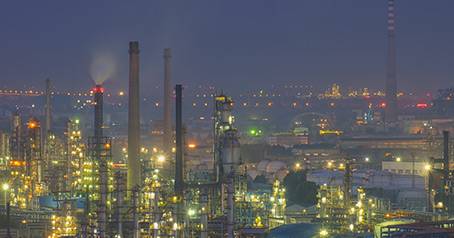Nov . 28, 2024 06:17 Back to list
Applications and Benefits of Perforated PVC Pipe in Drainage Systems and Landscaping
The Versatility and Applications of Perforated PVC Pipe
Perforated PVC (Polyvinyl Chloride) pipe is a crucial material utilized in various applications across the construction and landscaping industries. Its unique design features small holes or perforations strategically placed along the length of the pipe, allowing for efficient drainage and aeration in a variety of environments. This article explores the characteristics, benefits, and practical applications of perforated PVC pipe, highlighting its importance in modern engineering solutions.
Characteristics of Perforated PVC Pipe
Perforated PVC pipe is known for its robust and lightweight nature. PVC itself is a thermoplastic material that is resistant to corrosion, chemicals, and UV damage, making perforated PVC pipes suitable for both indoor and outdoor use. The perforations in the pipe allow water to seep through while facilitating air exchange, which is essential for many drainage systems. These pipes are typically available in various diameters and lengths, ensuring versatility depending on project needs. Furthermore, they can withstand high pressures, making them ideal for fluid transport systems.
Benefits of Using Perforated PVC Pipe
One of the primary advantages of perforated PVC pipe is its excellent drainage capacity. Its design helps to collect and redirect excess water away from structures and landscapes, preventing water accumulation that could lead to erosion or flooding. For instance, homeowners can use these pipes in their gardens to promote better drainage in areas prone to waterlogging.
Another significant benefit is the pipe's resistance to biological growth. Unlike traditional materials such as metal or clay, perforated PVC does not corrode, rust, or support mold and algae growth. As such, it reduces maintenance costs and ensures longevity in various applications.
Moreover, perforated PVC pipe is lightweight and easy to handle. This characteristic simplifies installation processes, allowing contractors to complete projects more efficiently. Additionally, the flexibility of PVC makes it easier to work with during installations that require bends or specific configurations.
perforated pvc pipe

Applications of Perforated PVC Pipe
Perforated PVC pipe finds a range of applications across different fields. One of its most common uses is in drainage systems, where it helps manage stormwater runoff in urban areas. By directing water away from roads and buildings, it mitigates flooding risks and protects infrastructure.
In agricultural settings, perforated PVC pipe serves as a vital component of agricultural drainage systems. It aids in the drainage of excess water from fields, preventing crop damage and promoting healthier plant growth. The aeration provided by these pipes is equally beneficial, allowing nutrients and oxygen to reach plant roots more effectively.
Another significant application is in septic systems. Perforated PVC pipes are integral in leach fields, where they assist in the dispersal of effluent in a controlled manner. This process helps in the natural treatment of wastewater, crucial for maintaining the environmental integrity of rural areas not served by municipal sewage systems.
Landscapers also utilize perforated PVC pipe in various projects, such as constructing French drains. These drains facilitate water movement through soil while preventing landscaping damage. The pipes can be buried underground, effectively managing excess moisture without disrupting the beauty of the landscape.
Conclusion
In summary, perforated PVC pipe represents a practical and efficient solution for various drainage and fluid management challenges. Its unique characteristics, such as durability, lightweight nature, resistance to biological growth, and ease of installation, make it a popular choice among contractors, landscapers, and agricultural professionals alike. As urbanization continues to increase and surface water management becomes more critical, the significance of perforated PVC pipe will undoubtedly grow, reinforcing its status as a vital component in contemporary infrastructure development and environmental conservation efforts. Whether used in residential, commercial, or agricultural projects, perforated PVC pipe remains an essential tool in promoting effective water management practices.
-
HDPE Pipe Fittings: Durable, Leak-Proof Solutions
NewsAug.16,2025
-
Premium CPVC Sheet: High-Temp & Chemical Resistant Solutions
NewsAug.15,2025
-
Durable PPR Pipe for Hot & Cold Water Systems - Easy Install
NewsAug.14,2025
-
Durable HDPE Sheet | Versatile & Impact-Resistant Plastic
NewsAug.13,2025
-
Premium PVC Soft Sheets: Clear, Flexible & Durable
NewsAug.12,2025
-
Premium PVC Round Rods: Durable, Chemical Resistant, Easy to Machine
NewsAug.11,2025

